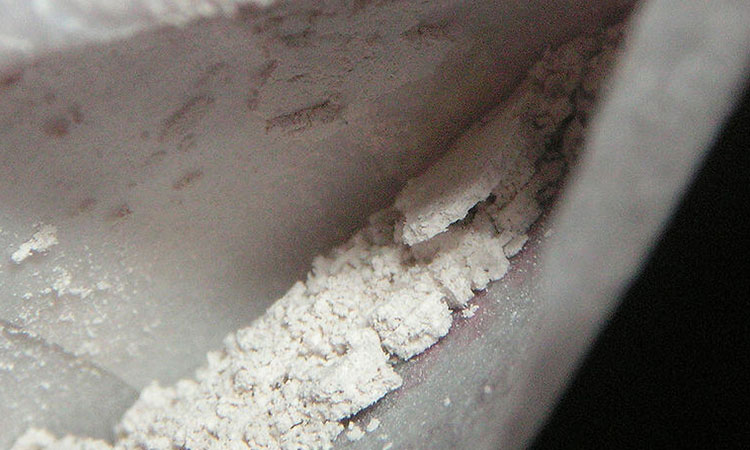
What Is Heroin? – Heroin is an illegal semi-synthetic opiate derived from morphine that acts as both a powerful pain reliever and central nervous system (CNS) depressant. People use heroin primarily as a recreational drug for its desired effects, which include intense euphoria and relaxation.
Heroin, however, has a high potential for addiction and overdose and is responsible for thousands of deaths each year in the United States alone.
Is Heroin a Narcotic?
A narcotic is a substance that affects the mood or behavior of the person who consumes it and is bought/sold/obtained illicitly, often for nonmedical purposes.
Currently, the Drug Enforcement Agency (DEA) classifies heroin as a Schedule I substance, meaning that it has a high potential for abuse and is not considered to have any legitimate medical use.
How Heroin Impacts the Brain and Body

Heroin acts on multiple neurotransmitters in the brain responsible for feelings of reward, well-being, and pain relief, and include chemicals such as dopamine and serotonin. As a CNS depressant, heroin reduces activity in the central nervous system (CNS) and can result in heavy sedation and profound CNS suppression, characterized in part by potentially life-threatening respiratory distress.
Forms of Heroin and Methods of Delivery
Heroin is usually found in a whitish to brown powder and can be administered intranasally, intravenously (injection), or by inhalation (freebase.) Black tar heroin is a dark, sticky form of heroin that is made using crude processing methods that do not remove impurities.
Heroin is also frequently combined with other illicit drugs, including fentanyl, methamphetamine, and cocaine.
Side Effects of Heroin
In addition to the extreme high caused by heroin use, individuals can experience a myriad of adverse side effects.
These include, but are not limited to the following:
- Nausea and vomiting
- Brain fog
- Lethargy
- Confusion
- Dry mouth
- Itching
- Sensitivity to light
- Slowed breathing
- Slowed heart rate
Side effects can vary in duration and intensity based on individual factors such as weight, overall physical health, and tolerance, as well as the amount used and potency of the drug.
Also, using heroin in combination with other drugs or alcohol can enhance or conflict with the effects of all substances involved, and lead to unpredictable complications.
Heroin Overdose
A heroin overdose is a life-threatening medical emergency that can leave the user in an unresponsive, vegetative state. During this state, many problems can occur that could result in death, including suffocation and respiratory arrest.
In the event of an overdose, emergency medical services are needed immediately to perform lifesaving procedures, including the administration of naloxone (Narcan), a drug that reverses the depressant effects of heroin that can lead to respiratory arrest and death.
Heroin Tolerance and Dependence
Heroin tolerance occurs when increasing amounts of the drug are necessary to achieve the user’s desired results. While most psychoactive substances have a potential for tolerance, the use of heroin and other opioids especially can result in rapid tolerance to analgesic (painkilling) effects.
Heroin dependence when the user’s body is no longer able to function normally without the drug’s presence in their system. If a user tries to quit or cut back, highly unpleasant withdrawal symptoms occur as the body attempts to regain normality upon the drug’s absence.
Heroin Withdrawal Effects
Withdrawal effects of heroin may include, but are not limited to the following:
- Nausea
- Abdominal pain
- Sweating
- Shaking and nervousness
- Agitation
- Depression and anxiety
- Muscle spasms
- Intense drug cravings
Detox and Treatment for Heroin Addiction

Heroin withdrawal syndrome is rarely life-threatening. Symptoms can be intense, uncomfortable, and painful, however, and are among the primary causes of relapse. Occasionally, symptoms such as severe depression or anxiety can lead to suicidal thoughts which pose yet another health risk.
Detox can occur in a hospital or addiction treatment facility. Effects of heroin withdrawal can begin within a few hours of the last dose and tend to peak around 2-3 days after use. Acute withdrawal effects usually subside with a week.
Treatment for heroin addiction after detox is highly encouraged. Individuals usually have the choice of either inpatient or intensive outpatient treatment.
Both program structures should offer evidence-based practices such as behavioral therapy, individual and group therapies, holistic practices, counseling, and aftercare options.
Inpatient programs participants reside at a specialized facility 24 hours a day for an extended period, often 30 days or longer. Outpatients attend sessions a few times per week but live at an independent residence and attend to personal responsibilities such as work and family.
Getting More Information
We provide a comprehensive, holistic method to treatment, encompassing a wide array of different evidence-based practices in combination. All of Midwood Addiction Treatment’s primary therapists are either licensed or master’s level clinicians.
Our programs are structured with various components of evidence-based treatment practices and holistic approaches to treatment that provide our patients with the knowledge and tools they need to be successful in their recovery.
If you or your loved one is suffering from substance abuse, please seek help as soon as possible.
Call us now to learn about our treatment options.
Related: Fentanyl
Fentanyl is a synthetic opioid that affects the human body much like heroin. It is up to 50 times more potent, however, and is frequently found laced into heroin or substituted outright for it in the form of counterfeit pills such as Xanax or Vicodin.
Fentanyl is easy and inexpensive to make and is popular with dealers seeking to maximize profits. While some drug users seek out fentanyl specifically, many are the victim of unintentional overdoses due to fentanyl’s unknown presence in the drug(s) they consumed, often believed to be heroin.